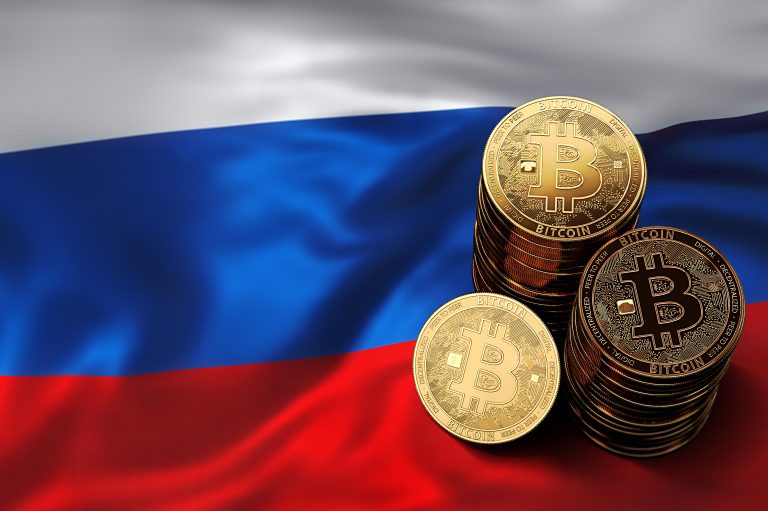Tinkoff, one of Russia’s leading private banks, is facing challenges in offering crypto trading services due to restrictive policies from the Russian Central Bank. Despite the legalization of cryptocurrency trading in January, the bank’s CEO, Oliver Hughes, recently revealed that local banks are still prohibited from providing such services. Speaking at the Saint Petersburg International Economic Forum, Hughes emphasized the growing demand from Tinkoff’s clients for cryptocurrency investments and expressed hope for a future where these barriers are eased.
Tinkoff’s Position in the Russian Banking Sector
1. Leading Private Bank
- Tinkoff is Russia’s third most popular bank, following Sberbank and VTB.
- Known for its innovation, Tinkoff offers a range of investment products, including stocks, bonds, and currencies, through its Tinkoff Investments platform.
2. Rising Client Demand for Crypto
- The bank has observed increasing interest from its clients to invest in cryptocurrencies like Bitcoin.
- Tinkoff’s inability to meet this demand highlights the gap between regulatory policies and market needs.
Challenges in Offering Crypto Trading
1. Central Bank Restrictions
- Despite the legalization of crypto trading, the Russian Central Bank maintains a strict stance on digital assets.
- Local banks, including Tinkoff, are prohibited from offering cryptocurrency services, limiting their ability to cater to client demand.
2. Lack of Regulatory Mechanisms
- According to Hughes, there is no framework or mechanism for Russian banks to offer crypto products responsibly.
- The absence of clear guidelines has left banks struggling to navigate the regulatory landscape.
Qualified Investors and Risk Concerns
1. Addressing Qualified Investors
- Hughes noted that many of Tinkoff’s clients are qualified investors who understand the risks of cryptocurrency trading.
- These investors are well-equipped to handle the volatility of the crypto market but are unable to access services through local banks.
2. Risks Highlighted by the Central Bank
- The Russian Central Bank cites concerns over money laundering and the high volatility of cryptocurrencies as key reasons for its restrictive policies.
- These concerns have resulted in stringent measures, preventing banks like Tinkoff from venturing into crypto trading.
Tinkoff’s Hope for the Future
1. Evolving Regulatory Landscape
- Hughes expressed optimism that the situation will improve over time, allowing Tinkoff to align with the Central Bank’s goals while offering crypto trading responsibly.
2. Balancing Compliance and Demand
- Tinkoff is committed to ensuring compliance with anti-money laundering (AML) regulations and protecting investors from undue risks.
- The bank aims to responsibly introduce crypto products, addressing both regulatory concerns and client demand.
Crypto Trading in Russia: A Complex Environment
1. Legalization of Crypto Trading
- Russia officially legalized cryptocurrency trading in January.
- However, the lack of comprehensive regulatory support has limited the practical implementation of this policy.
2. Global Comparison
- In contrast to Russia, countries like the United States and Switzerland have developed frameworks enabling banks to offer crypto trading services.
- This highlights the gap between Russia’s crypto legislation and international best practices.
Tinkoff’s Role in Shaping Crypto Adoption
1. A Trusted Name in Investments
- Tinkoff’s reputation as a leading investment platform positions it as a key player in Russia’s potential crypto market.
- By introducing crypto trading responsibly, Tinkoff could pave the way for other banks to follow suit.
2. Advocacy for Change
- Hughes’ statements underline the need for dialogue between banks and regulators to address the challenges of crypto adoption.
Conclusion
Tinkoff’s challenges in offering crypto trading reflect the broader issues in Russia’s regulatory approach to digital assets. While the Central Bank’s concerns about money laundering and volatility are valid, the lack of a practical framework restricts the ability of banks like Tinkoff to meet growing client demand. CEO Oliver Hughes’ optimism for an evolving regulatory environment suggests that change may be on the horizon, paving the way for responsible crypto adoption in Russia.
To learn more about how global financial institutions are adapting to cryptocurrency, explore our article on latest news, where we delve into industry trends and regulatory developments.
Disclaimer: The information provided is not trading advice, Bitcoinworld.co.in holds no liability for any investments made based on the information provided on this page. We strongly recommend independent research and/or consultation with a qualified professional before making any investment decisions.




